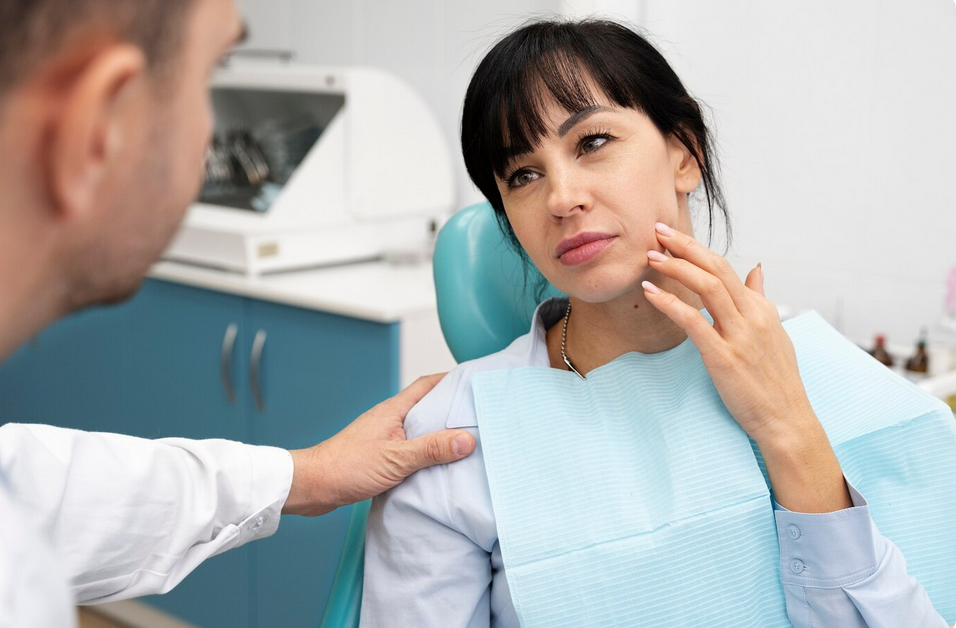Surgical menopause—caused by the removal of both ovaries (bilateral oophorectomy)—brings on an abrupt and often intense onset of menopausal symptoms, regardless of age. Unlike natural menopause, where hormone levels decline gradually, surgical menopause causes an immediate drop in estrogen, progesterone, and testosterone, which can have a dramatic effect on your physical and emotional well-being.
Hormone therapy (HT) is often recommended to help manage these sudden changes. In this article, we’ll walk you through what to expect from hormone therapy after surgical menopause, how it’s different from natural menopause treatment, and how it can improve quality of life.
What Is Surgical Menopause?
Surgical menopause occurs when a woman’s ovaries are removed, typically during a hysterectomy or as a preventive measure for women at high risk of ovarian cancer (e.g., BRCA1/BRCA2 mutation carriers).
Unlike natural menopause, which typically occurs around age 51, surgical menopause can happen at any age—and the younger you are, the more profound the effects of sudden estrogen loss.
Symptoms After Surgical Menopause:
- Severe hot flashes and night sweats
- Intense mood swings or depression
- Vaginal dryness and painful intercourse
- Sleep disturbances
- Cognitive fog, memory issues
- Decreased libido
- Increased risk of bone loss and cardiovascular disease (especially in younger women)
Why Hormone Therapy Is Often Recommended
Because of the sudden and intense hormonal shift, hormone therapy is usually strongly considered for surgical menopause patients—especially those under age 45.
Benefits of HT in Surgical Menopause:
- Relieves immediate symptoms (hot flashes, night sweats, vaginal dryness, insomnia)
- Protects long-term health by reducing risks of:
- Osteoporosis
- Heart disease
- Cognitive decline
- Urogenital atrophy
- Improves mood and quality of life
- Helps maintain sexual health and libido
What to Expect at Your First Appointment
When you meet with your healthcare provider to discuss HT after surgical menopause, they’ll evaluate:
- Your surgical history (which organs were removed, any cancer risk factors)
- Your personal and family medical history
- Your current symptoms and how they’re affecting your daily life
- Your age and how long it’s been since surgery
You’ll also have a physical exam, and possibly blood work, to help guide treatment decisions.
Types of Hormone Therapy for Surgical Menopause
Depending on your individual needs and surgical history, your provider may recommend one or more of the following:
1. Estrogen-Only Therapy
- Recommended for women who’ve had a hysterectomy (no uterus).
- Can be given as pills, patches, gels, or vaginal rings.
- Considered the gold standard for relieving menopause symptoms and protecting against bone loss.
2. Estrogen + Progestin Therapy
- Needed only if the uterus remains intact to prevent endometrial overgrowth.
- Less common in surgical menopause if a total hysterectomy was performed.
3. Testosterone Therapy
- May be considered if you experience:
- Severe fatigue
- Low libido
- Poor muscle tone or cognitive decline
- Still somewhat controversial, but some women benefit from low-dose testosterone replacement.
How Soon Can You Start Hormone Therapy?
HT can usually begin immediately after surgery or once you’re cleared post-op. Starting sooner can prevent severe symptoms from setting in.
If HT was not started right after surgery, it can still be effective even if introduced weeks or months later.
How Long Will You Need Hormone Therapy?
The duration depends on your age at the time of surgery and your risk factors:
- Women under 45 are generally advised to stay on HT at least until the average age of natural menopause (around 50–52) for long-term health protection.
- After that point, treatment decisions are made based on symptom persistence and personal health goals.
Side Effects to Watch For
While HT is generally safe for healthy women without contraindications, some potential side effects include:
- Breast tenderness
- Nausea or bloating
- Headaches
- Mood changes
- Spotting or irregular bleeding (if you still have a uterus)
Most side effects improve over time or with dose adjustments. Your provider will monitor you regularly to ensure safety and effectiveness.
Is Hormone Therapy Safe After Cancer-Related Surgery?
If your ovaries were removed due to hormone-sensitive cancer (like certain breast or ovarian cancers), systemic hormone therapy may not be appropriate. In such cases:
- Non-hormonal options (like SSRIs, gabapentin, or lifestyle strategies) may be used.
- Local vaginal estrogen (with minimal absorption) may be considered on a case-by-case basis.
Always consult with an oncologist or menopause specialist before starting any therapy.
Questions to Ask Your Provider
- What type of hormone therapy is best for my situation?
- How soon should I begin treatment?
- What are the benefits and risks specific to me?
- What should I expect in terms of symptom relief and timeline?
- Will I need testosterone?
- How often will we monitor my progress?
- What are my options if I can’t take hormone therapy?
Final Thoughts
Surgical menopause can be physically and emotionally overwhelming—but hormone therapy offers powerful relief and protection, especially for younger women. By working closely with your healthcare provider, you can find the right treatment plan to regain balance, reduce long-term health risks, and improve your overall quality of life.




